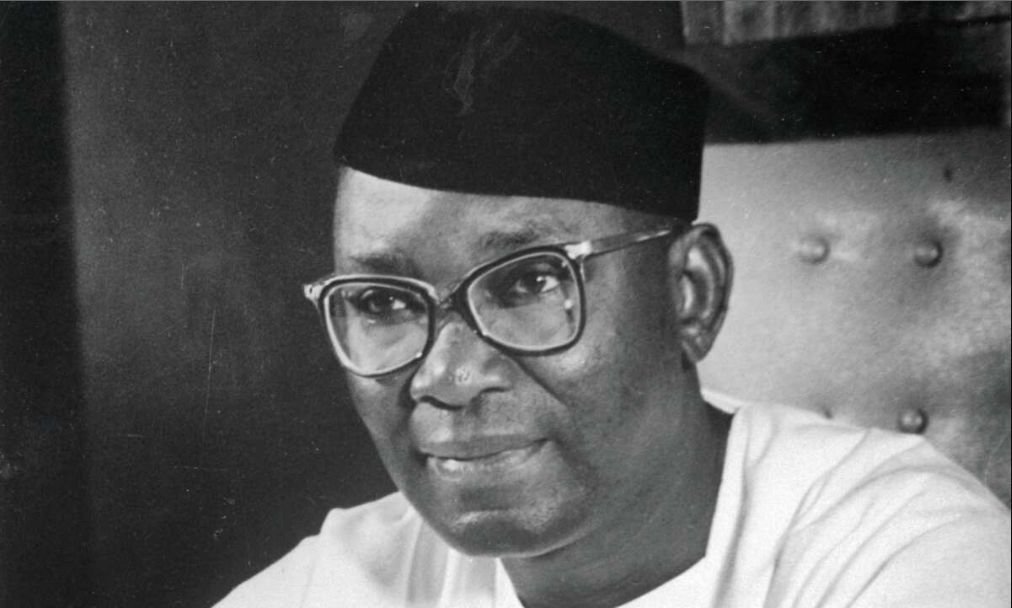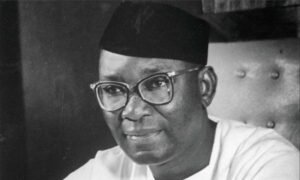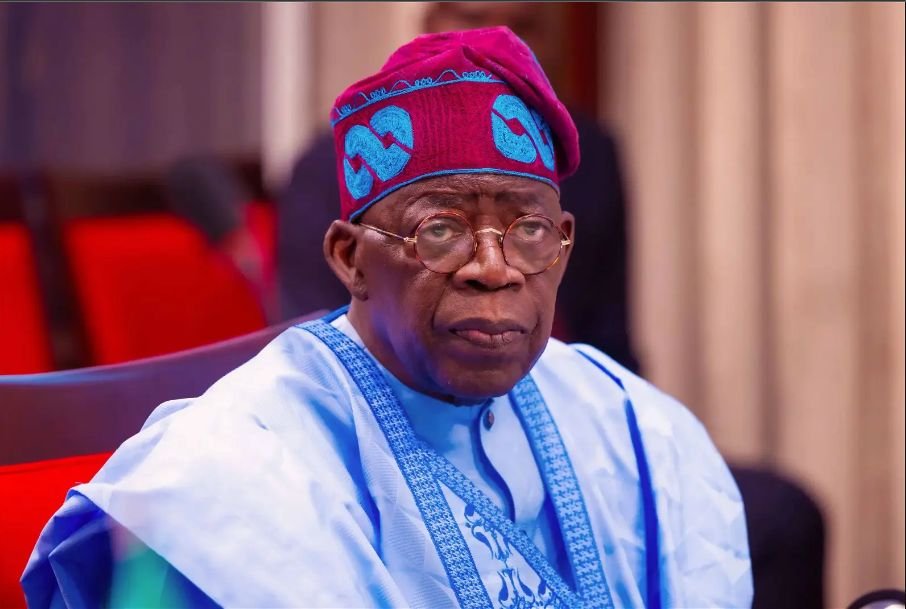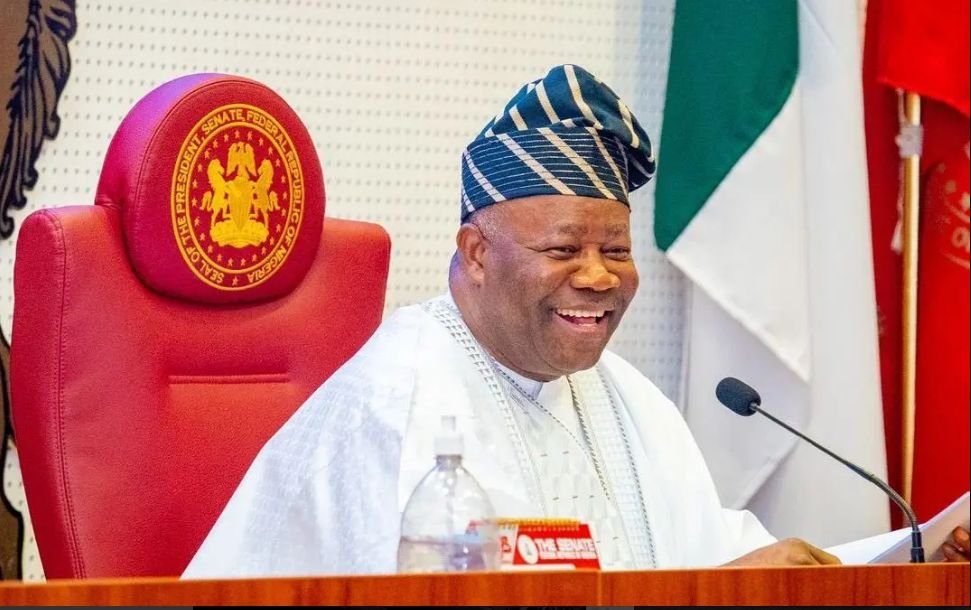
Who Was The First President Of Nigeria (And In What Year?)
This is the most comprehensive resource for you if you’re looking to learn everything about Nigeria’s first president. In this guide, you will learn:
- Nigeria Inaugural president
- How the first president came to power
- The early years of the presidency
- The contribution of the first president
Plus 10 Interesting facts about the first Nigeria president.
READ ALSO: Complete List Of Nigerian Presidents (From 1960 Till Date)
Who Was Nigeria’s Inaugural President?

Nigeria’s inaugural president after independence from British colonial rule was Nnamdi Azikiwe, a man widely respected as the father of Nigerian nationalism.
Azikiwe, popularly known as “Zik,” was born on November 16, 1904, in Zungeru, Northern Nigeria. His full name, Benjamin Nnamdi Azikiwe, recalled his mixed Igbo-Opobo heritage.
Azikiwe’s path to becoming Nigeria’s first president was a long and storied one. He was a pioneer of anti-colonial activism and a leading voice in the country’s independence movement.
Azikiwe co-founded the Nationalist movement in Nigeria and was at the forefront of the struggle for self-governance, using his platform as the founder of the influential West African Pilot newspaper to rally support for the cause.
In 1960, when Nigeria gained independence after decades of British rule, Azikiwe was appointed as the country’s first indigenous Governor-General, effectively serving as the ceremonial head of state.
Three years later, on October 1, 1963, Nigeria moved from a monarchy to a republic, and Azikiwe assumed the role of the country’s first President.
While his powers as President were largely ceremonial, with executive authority residing with the Prime Minister, Azikiwe’s influence and stature as a unifying figure were important in holding together Nigeria’s diverse ethnic and regional factions.
He traveled extensively throughout the country, promoting his vision of “One Nigeria” and using his oratory skills to rally the public behind the idea of a united, sovereign nation.
Azikiwe’s presidency may have been brief, lasting until January 16, 1966, when he was deposed in a military coup, but his impact on Nigerian history and the country’s struggle for independence cannot be overstated.
He was a man of many firsts, the first indigenous Governor-General, the first President, the first President of the Nigerian Senate, and the first civilian Governor-General of the Nigerian nation.
How Did Nigeria’s First President Come To Power?
Nnamdi Azikiwe’s rise to becoming Nigeria’s first president was not through a direct democratic election by the Nigerian people.
Rather, his path to power was shaped by the complex dynamics of Nigeria’s transition from British colonial rule to self-governance.
In the years leading up to independence, Azikiwe had established himself as a prominent figure in the Nigerian nationalist movement.
His activism, coupled with his role as the founder and editor of the influential West African Pilot newspaper, made him a vocal and influential advocate for Nigerian self-determination.
When Nigeria gained independence from Britain on October 1, 1960, the country initially adopted a parliamentary system of government based on the Westminster model.
In this system, the head of state known as the Governor-General – served as the Queen’s representative and held a largely ceremonial role, while the Prime Minister led the government and held executive powers.
In recognition of his key role in the independence struggle, Azikiwe was appointed as Nigeria’s first indigenous Governor-General by the British monarchy.
This position allowed him to become the symbolic head of state, but his powers were limited, and he was constitutionally bound to act on the advice of the Prime Minister and the elected parliament.
Over the next three years, there was growing sentiment among Nigerian leaders and the public to sever the country’s remaining ties to the British monarchy and establish a republican system of government.
This topped in a constitutional referendum in 1963, in which Nigerians voted to abolish the monarchy and establish a republican form of government.
On October 1, 1963, precisely three years after independence, Nigeria officially transitioned from a monarchy to a republic.
In this restructuring of the political system, the position of the Governor-General was replaced by that of the President.
Leveraging his experience as the ceremonial head of state and his iconic status as a nationalist leader, Azikiwe was appointed as the first President of the newly formed Nigerian republic.
As we’ve stated, while his powers remained largely ceremonial, with executive authority still residing with the Prime Minister, Azikiwe’s presidency carried immense symbolic significance.
He became the first Nigerian to hold the highest office in the land, a role that had previously been reserved for British monarchs or their representatives.
What Were The Early Years Of Their Presidency Like?
The early years of Nnamdi Azikiwe’s presidency were characterized by a mix of ceremonial duties and efforts to unite Nigeria’s diverse ethnic and regional factions under the banner of a cohesive, sovereign nation.
Despite the largely symbolic nature of his role, Azikiwe leveraged his immense popularity and oratory skills to promote his vision of “One Nigeria” and promote a sense of national identity.
Immediately after assuming the presidency on October 1, 1963, Azikiwe ventured on a nationwide tour, crisscrossing the country and addressing public gatherings in different states.
These tours were not mere formalities but strategic efforts to connect with the Nigerian people directly, transcending ethnic and regional divides.
Azikiwe’s speeches were infused with a sense of patriotism and a call for unity, reminding Nigerians of their shared struggle for independence and the need to come together as one nation.
While executive powers resided with the Prime Minister and the elected parliament, Azikiwe’s influence spread beyond the ceremonial.
He used his bully pulpit to advocate for policies and initiatives that could promote national cohesion and development.
For instance, he championed the adoption of a national youth service program, which aimed to expose young Nigerians to different parts of the country, promoting understanding and bridging cultural gaps. However, the early years of Azikiwe’s presidency were not without challenges.
Nigeria’s diverse ethnic and religious makeup, coupled with the complexities of balancing regional interests, presented formidable obstacles to national unity.
Tensions rose between the predominantly Muslim north and the Christian-majority south, while the Igbo, Hausa, and Yoruba ethnic groups vied for political influence and resources.
Azikiwe’s efforts to promote unity were also complicated by the growing rifts within the ruling coalition government.
Disagreements over power-sharing arrangements and allegations of electoral malpractice worsened the fragility of the young nation’s political landscape.
Despite his best efforts, Azikiwe found himself increasingly caught in the crosshairs of these political rivalries and power struggles.
What Is The Legacy Of Nigeria’s First President?
Nnamdi Azikiwe’s legacy is that of a visionary leader, a unifying figure, and a tireless advocate for Nigerian sovereignty and national identity. His impact has resonated through the decades, shaping the narrative of Nigeria’s journey as a sovereign nation.
Arguably, Azikiwe’s most enduring legacy lies in his role as a pioneer of Nigerian nationalism and a unifying force in a country grappling with the complexities of its diverse ethnic, religious, and regional identities.
Through his writings, speeches, and tireless advocacy, he championed the idea of “One Nigeria,” a vision that sought to forge a shared sense of nationhood among the country’s disparate groups.
Azikiwe’s commitment to national unity was mirrred in his actions and policies during his presidency. As said, he went on numerous nationwide tours, reaching out to traditional rulers, community leaders, and ordinary Nigerians, transcending ethnic and regional divides.
His ability to connect with people from all walks of life and his oratory skills allowed him to rally support for the cause of national cohesion.
Aside from his efforts to promote unity, Azikiwe’s legacy is also tied to his dedication to the principles of democracy and self-governance.
As a leading voice in the independence movement, he played a key role in mobilizing public support and negotiating with British authorities, ultimately paving the way for Nigeria’s evolution to self-rule.
Azikiwe’s presidency, though brief, kept a symbolic shift in Nigeria’s political landscape. As the first indigenous president, he shattered the colonial legacy of having the country’s highest office occupied by British monarchs or their representatives.
His rise to the presidency was a powerful statement of Nigerian self-determination and a source of pride for a nation that had long been dominated.
Moreover, Azikiwe’s influence stretched outside the political space. He was a prolific writer and journalist, using his platform to educate and inform Nigerians about the struggles and aspirations of their nation.
His works, such as the influential book “Renascent Africa,” became seminal texts that helped shape the discourse around African nationalism and the continent’s pursuit of self-determination.
In the years following his presidency, Azikiwe continued to play an active role in Nigerian politics, serving as the first President of the Nigerian Senate and later as the Chancellor of the University of Lagos.
His contributions were recognized both at home and abroad, with numerous honors and accolades awarded to him, including honorary doctorates from prestigious universities around the world.
10 Facts About Nnamdi Azikiwe
- Full Name: Benjamin Nnamdi Azikiwe, popularly known as “Zik.”
- Born: November 16, 1904, in Zungeru, Northern Nigeria to Igbo parents.
- Education: Studied in Nigeria, United States, earned master’s degree from Lincoln University.
- Founded: The influential West African Pilot newspaper in 1937 to advocate for Nigerian independence.
- Co-founded: The National Council of Nigeria and the Cameroons (NCNC), a leading pro-independence party.
- First Indigenous: Governor-General of Nigeria from 1960-1963 under British rule.
- Inaugural President: Became Nigeria’s first president in 1963 when the nation became a republic.
- Unifying Vision: Promoted “One Nigeria” philosophy to unite diverse ethnic/regional groups.
- Writer: Authored books like “Renascent Africa” exploring African nationalism.
- Honored: Received honorary doctorates from universities globally for nationalism efforts.
Reference Sources:


